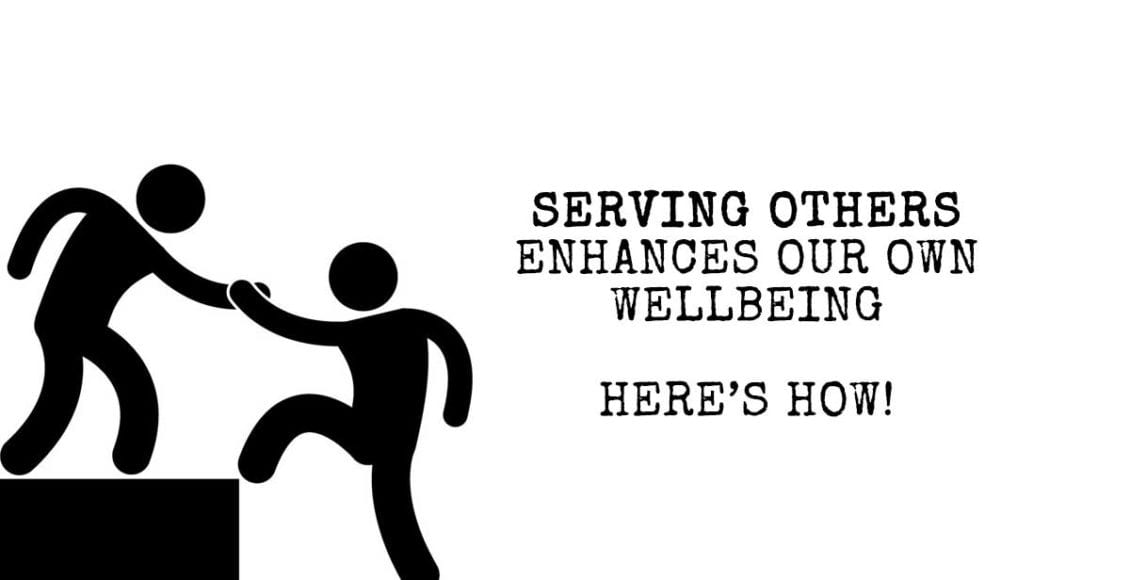Ralph Waldo Emerson once mused, “The purpose of life is not to be happy. It is to be useful, to be honorable, to be compassionate, to have it make some difference that you have lived and lived well.”
What if we could achieve both?
As it turns out, doing so may be easier and more beneficial than one would guess.
The results of a survey of nearly 5,000 people, conducted collaboratively by United Healthcare and Volunteer Match, suggest that the act of serving others, in itself, can increase our level of happiness in addition to giving us a sense of purpose and an increased amount of self-esteem.
According to their findings, choosing to serve others can also lower our stress levels and markedly improve our physical health.
Of those surveyed, forty-one percent reported that they engaged in volunteer work. Their community service commitments averaged one hundred hours per year.
In addition to the benefits listed above, almost ninety percent of those who volunteered reported that it increased their overall sense of wellbeing – a general marker of health, fulfillment, and happiness.
So – how does it work?
As Stephen G. Post, author of The Hidden Gifts of Helping: How the Power of Giving, Compassion, and Hope Can Get us Through Hard Times, explained in a Psych Central interview, “As the saying goes, ‘if you help someone up the hill, you get closer yourself.’ Whether the group is focused on weight loss, smoking cessation, substance abuse, alcoholism, mental illness and recovery, or countless other needs, a defining feature of the group is that people are deeply engaged in helping one another, and are in part motivated by an explicit interest in their own healing.” In other words, when we help others to heal and to grow, we are truly and deeply doing the same for ourselves.
While one hundred hours sounds like a lot in total, it can be achieved by setting aside less than two hours each week, or a full workday once every month. Also, it is important to note that your volunteer work does not have to feel like work. Find a volunteer opportunity that appeals to you and fits easily with your life. If you love animals, offer to walk the dogs at the local humane society one morning each week. If you’d like to spend more time with your son, sign up to help in his classroom or take his Boy Scout troop on a camping trip. If you love to bake, bring homemade cookies to a women’s shelter.
But, if your schedule leaves no time or freedom for even a small commitment – would writing a check have the same effect?
It depends.
According to research in the area of prosocial spending, charitable giving can give us the same effect, but only when it is combined with social connection. Lara Aknin of Simon Fraser University, along with colleagues at the University of British Columbia and Harvard Business School, conducted three studies examining pro-social charitable donations. They found conclusively that this generous behavior yields the greatest impact on happiness when it promotes the development or maintenance of a human connection. In other words, we feel better when we donate to a friend. Give to a charity through your nephew who is marching to raise funds. Donate to a foundation that is dedicated to finding a cure for an illness which impacts a loved one. For Christmas, gift your parents a donation to their favorite cause.
Better yet, combine these two theories and volunteer alongside your children, best friend, or significant other.
As Barack Obama once said, “The best way to not feel hopeless is to get up and do something. Don’t wait for good things to happen to you. If you go out and make some good things happen, you will fill the world with hope, you will fill yourself with hope.” Improve humankind from the inside out. You have the power to change your world, and to change the way you see yourself living in it.


